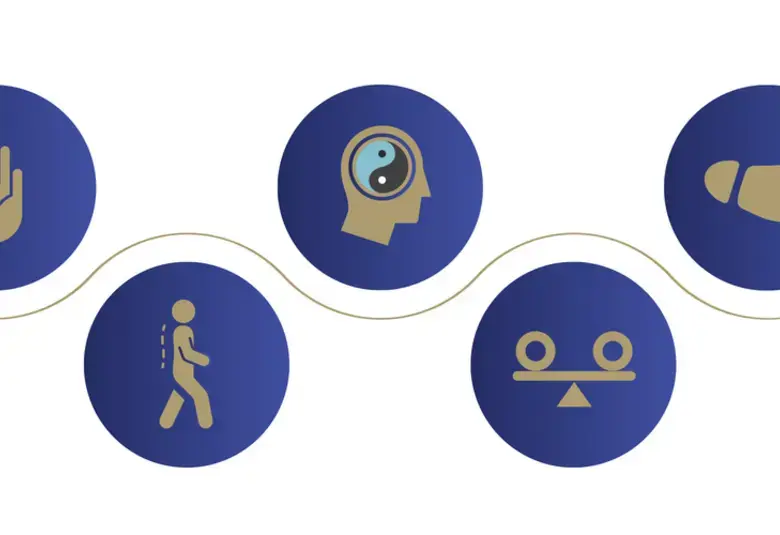Life Goes On
November 30, 2020- The Korean song, “Life Goes On” by BTS, placed number 1 in the Billboard Hot 1001. The song, through its message and melody, was able to capture the pandemic experience. Talking about how the world stopped without warning, how life changed without consent, and how there was no end in sight, the song helped listeners move from the feeling of being stuck to going through the motions of life. From grief and uncertainty in its opening verse, the song closed to remembering how life did go on- in between was coping with the day-to-day life.
The protective value of Coping with Grief, Depression, and Anxiety in the COVID-19 Era
In the closing days of 2019, the COVID-19 began insidiously creeping out of the Chinese borders. As seen in the WHO timeline2, by the end of the first quarter of 2020, life changed forever. In an effort to control the novel corona virus, as it was called at the time, social measures were implemented by each country. The rest of the year became a challenge for the whole world about how best to react to the situation. The psychological stress of the worldwide pandemic became more evident each day and coping and resiliency kept on being tested as the months evolved into new year of 2021.
The psychological stress of the worldwide pandemic became more evident each day and coping and resiliency kept on being tested as the months evolved into new year of 2021.
In an interview with the Harvard Business Review, David Kessler3, the world renowned Thanotologist most famous for working with Dr. Elisabeth Kubler-Ross on the stages of grief, named the persistent negative affect of the pandemic period as ‘grief’. In its most common usage, grief pertains to having been bereaved of a loved-on. That typical type of grief is true for many people who had significant individuals lost due to the virus. However, Kessler pointed out that the world is currently experiencing a more complex type to grief - a compounding of the loss of the life one had, the loss of normalcy, and the anticipatory grief due to the uncertainty of the situation. He continued on to point out that the reactions most people have of denial, anger, bargaining, etc. are all part of the stages of grieving. These reactions to the psychological stress can be deemed as normal reactions.
Compounding the grief on the life and the lives lost, international and regional studies4,5on the impact of COVID-19 on the Mental Health gave strong evidence about the how the level of uncertainty of the current situation contributed to the of psychological stress. Both media exposure to news and the quality of the government response contributed in eliciting anxious distress in the subjects of these studies. Danger is perceived all around by the brain and the anxiety responses are activated as means of protection against the danger.
The above scenarios depict how it is a normal reaction to feel grief and uncertainty during such dire times. Based on the Transactional Theory of Stress and Coping6, individuals are always appraising information from their environment. Stimuli and situations are assessed on their level of safety and coping strategies are instituted to manage the outcomes in terms of emotions, physicality, and behavior. Humans develop a preferred repertoire of coping response based on how well they worked in previous experiences. Situations and stimuli are then considered stressful if it challenges the individual’s capacity to cope. However, the pandemic also changed these coping strategies due to the limitations it placed on social interaction, self-care, and other lifestyle restrictions. Hence, the pandemic generation’s adaptability was put to the test in its selection, appraisal, and implementation of new coping strategies-adaptive vs. maladaptive coping.
This is the tipping point that will determine whether normal reactions to stress such as grief and uncertainty will crossover into clinical depression and pathological anxiety.
This is the tipping point that will determine whether normal reactions to stress such as grief and uncertainty will crossover into clinical depression and pathological anxiety.
Based on the findings of Xiong et. al (2020)4 and Wang et. al. (2021)5 on the factors that contributed to the impact of COVID 19 on mental health, a biopsychosocial model may be surmised and is seen in table 1.
In addition to the above factors, the severity of the stress, the loss of stress relieving coping strategies, and the protracted period of the pandemic can all contribute in the development of psychopathology- typically depression and pathological anxiety.
The question now goes, how can life go on?
According to David Kessler, going through the stages of grief one by one through adaptive coping strategies is the answer.
The stages of grief7 developed by Dr. Kubler-Ross are Denial, Anger, Bargaining, Depression/Sadness, and Acceptance.
Denial is a known coping mechanism that allows one to function despite the presence of danger. Unfortunately, in prolonged situations, it can prevent the institution of safety measures- relegating its persistence to a maladaptive response. Once denial could no longer be employed, a negative affect of anger surfaces. Anger, like most negative affects, is often in response to a triggered signal anxiety-the rude awakening of the threat to one mortality. Once anger dissipates and the reality of unremitting danger remains, the stage of bargaining begins. It is at this point that mechanisms of behavioral change start to become apparent. Many forms of new coping strategies may be employed in various successes. With each further appraisal, comes the sadness on dire truly the situation is. Exhaustions of these motions then lead to acceptance and the willing performance to adaptive measures.
David Kessler further discussed in the interview how “emotions need motions”. In psychoanalytic terms, drives need to be adequately discharged lest they lead to build up of misplaced libido. Therefore, in order for life to go on, the pandemic generation must look back into their selves, allow themselves to grieve, and reassess the efficiencies of their coping strategies.
“Like an echo in the forest,” as BTS sings in the closing verses, “the day will come back around.”
For the latest updates on sea.progress.im, subscribe to our Telegram Channel https://bit.ly/telePiM
Our correspondent’s highlights from the symposium are meant as a fair representation of the scientific content presented. The views and opinions expressed on this page do not necessarily reflect those of Lundbeck.





